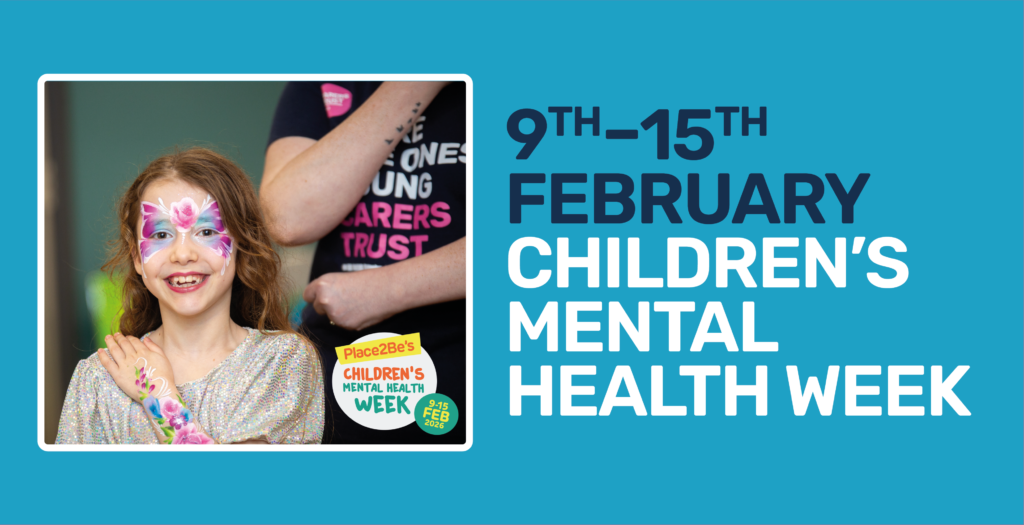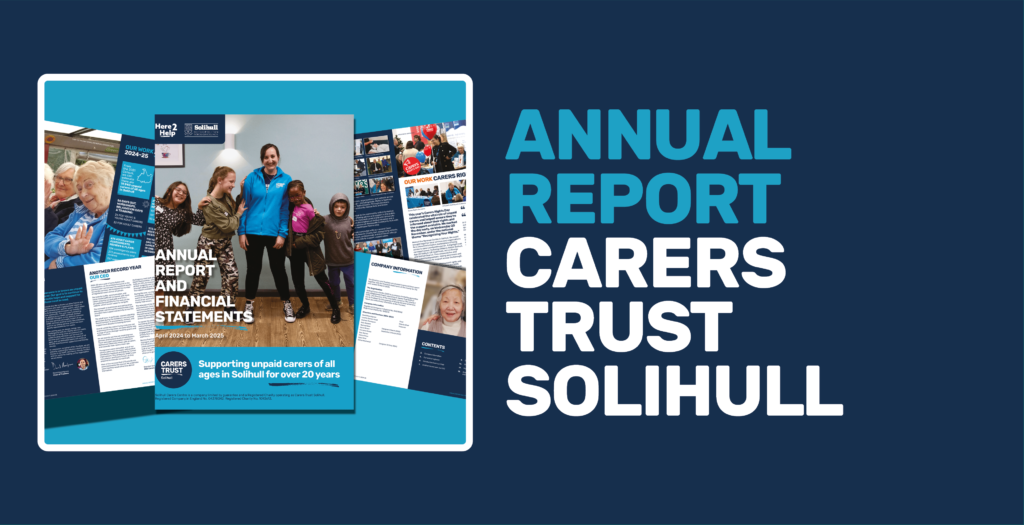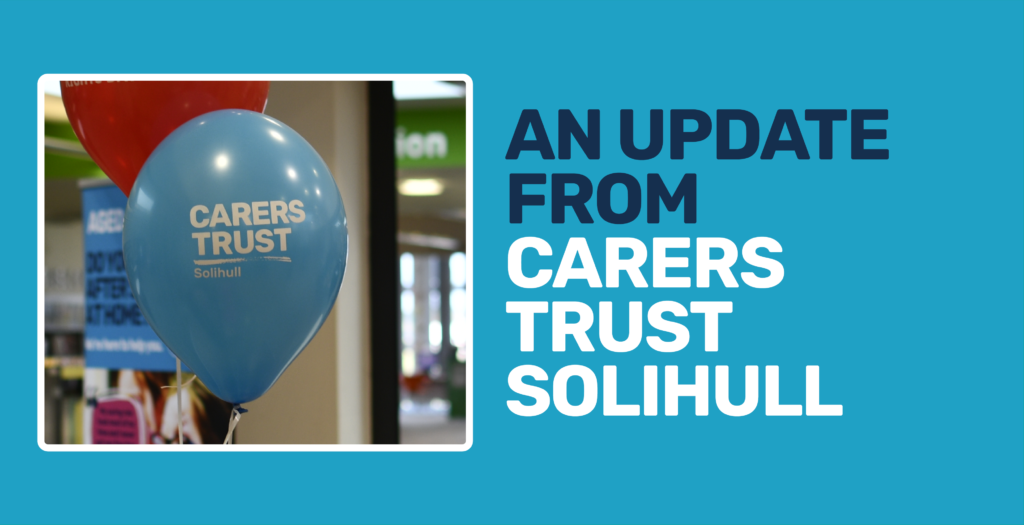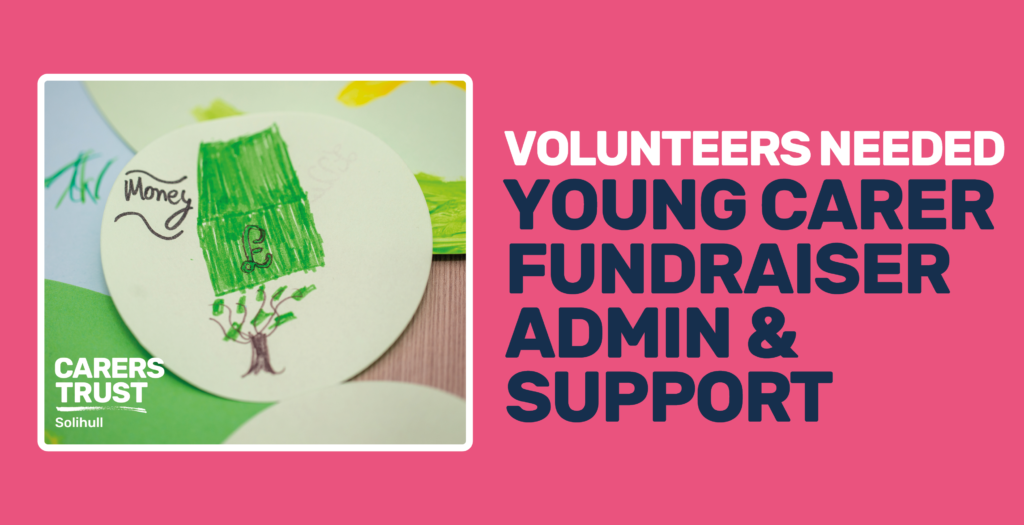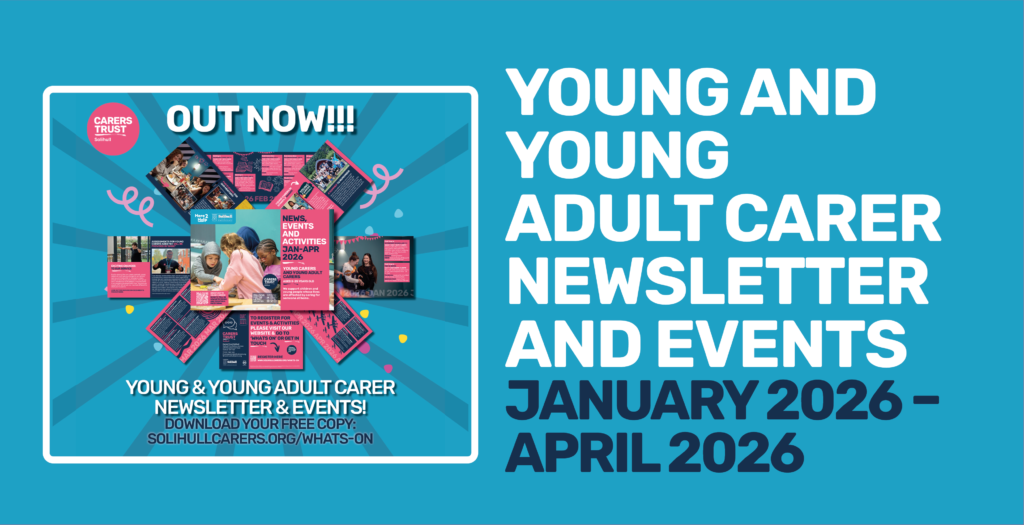Overview

For young carers, young adult carers, and adult carers applying to college, university or training, your personal statement is vital in selling yourself.
Unpaid carers – no matter your age – often develop skills and experiences from your caring role, which can make you excellent candidates for further education.
Whether you’re applying to college, university, an apprenticeship, or returning to education as an adult, this guide will offer you tips on wording, how to highlight the skills you’ve gained from caring and how to link them to your application or personal statement.
The personal statement is the first real introduction that an institution has of you, so you need to sell yourself effectively but also concisely. It is your opportunity to explain to admissions, tutors, or even employers why you’re a strong candidate. Depending on what it is you’re applying for, the process can be slightly different, but the idea remains the same for each – show off how brilliant you are.
- University (UCAS): You have up to 4,000 characters, roughly one side of A4, to demonstrate your suitability for your chosen course.
- College/Sixth Form: This could be slightly different from college to college, but generally the process will be an application form, that you will fill in with information about you and your GCSE (or equivalents) results. They will often ask shorter questions such as “Why do you wish to study this subject?”
- Apprenticeships: This could be different depending on the subject you’re applying for, but the process will be similar to a combination of applying for university and a job. You could be asked to submit a CV and cover letter, and/or complete online questions or application forms, to further explain your motivations and reasoning for wanting to apply for your chosen apprenticeship.
No matter which route you take, those you are applying to want to see who you are—your motivations, skills, and commitment.
Personal statements - what & how
A personal statement is the first opportunity you will have to demonstrate to admissions or employers why you’re suitable for your choice of course or apprenticeship. For university (usually through UCAS), you will have up to 4,000 characters, around a side of A4, to explain your interest and your suitability for the course. For apprenticeships, you may also, or instead of a personal statement, have to include a CV or a cover letter.
You can find example personal statements, organised by course/subject, by clicking here. Make sure to make your personal statement your own. After all, it is a personal statement.
In any case, you should include a brief explanation of your interest in the course, as well as motivations and skills. Now, you do not have to mention your caring role if you do not wish to. However, you will have learned valuable skills through it, so you can certainly include elements of it with your statement. For example, you might write that your caring responsibilities made you more “organised, resilient, and responsible” – all traits that are valued by universities, colleges and employers.
Caring builds life skills such as time management, organisation, self-discipline and resilience, so it could be beneficial to mention these. We will explain how to include these below. Important to note is that when applying via UCAS, there will be an option on the application to flag your caring status, so support can be offered by the right people, as only admissions personnel will see your personal statement.
Before you start writing, understand the formalities: students applying at 16–18 usually apply directly to sixth forms or colleges (sometimes via UCAS “Apply” for a few courses), while university applicants (18+) use UCAS online. Apprenticeship applicants typically apply via the national Apprenticeship Service (Click here to learn more) or directly to employers, and should prepare a CV or cover letter describing their skills and motivation. UCAS notes that when applying for apprenticeships, you should still emphasise both your academic and transferable skills. Learn more about this here via UCAS.
What to include in your personal statement:
Why You Want to Study This Subject
What excites you about the course?
How does it relate to your experiences, interests, or future goals?
Skills You’ve Gained from Caring
Organisation, time management, resilience
Real-life examples like managing appointments, supporting emotional health, or budgeting
Your Interests and Achievements
School or college achievements
Hobbies, part-time work, or voluntary roles
Things that show who you are beyond your caring role
Your Goals
What are your future hopes?
How will this course or qualification help you get there?
skills and qualities from caring
Being a carer involves numerous tasks that help to build valuable and transferable life skills. For example, unpaid carers often:
- Provide personal care or emotion support (comforting mental health issues, and assisting with bathing)
- Manage household tasks (cooking, cleaning, shopping, and financial budgeting)
- Coordinate medical needs (administering medication, finding, booking and attending important appointments)
Through these few and broad examples of skills caring can provide, you have gained highly prized and sought after qualities.
Use bullet points to help you understand what it is you have learned, or what skill you have gained. To name a few:
- Empathy, organisational skills
- Time management
- Problem-solving
- Budgeting and financial skills
- Working calmly under pressure
- Using your initiative
- Communication skills
- Reliability
- Patience and compassion
When you have your list, you can weave them in to the narrative of your statement. Instead of writing “I care for my father with dementia”, you could write, “caring for my father with dementia, has taught me patience and strong time-management skills”. Making sure to connect these qualities and your narrative with the course or apprenticeship for which you’re applying: e.g., “These experiences have made me well-prepared for the demanding workload of this course”.
How to mention your caring responsibilites
You do not have to mention you are an unpaid carer, but should you choose to, then frame it as a positive. It is not easy providing care, no matter your age or experience. However, you will have learned from it and these experiences and skills will help you stand out in the application process. Focusing on the positives also shows what it is you have learned from your experience. Rather than creating a story of hardship, it can show how you rise to challenges and overcome problems.
A good way of doing this is to contextualise a situation and then highlight the skills needed and acquired. Below are examples that you can adapt to your own situation. Be sure to use your own experiences and keep within any character or word limits.
“For the last two years, I have been the primary carer for my mother, who has mobility issues. This has required me to manage household schedules, attend medical appointments, and communicate with healthcare teams. It has made me organised, responsible and able to stay calm under pressure—skills which I believe will help me thrive in your business management course.”
“For the last year I have helped care for my mother, who lives with multiple sclerosis. Organising her weekly hospital appointments and administering medication taught me patience, resilience and a detail-oriented approach. These qualities, along with my passion for biology (demonstrated by my A-level project on cellular regeneration), make me a strong candidate for your Biomedical Science degree.”
“During my GCSEs, I cared for my younger sister, who has a visual impairment. Balancing her daily appointments with my schoolwork taught me excellent time-management and empathy. Volunteering at the local care home further inspired me to pursue Health & Social Care, where I can combine my academic strengths with hands-on experience.”
“I am keen to begin a Level 3 Business Administration Apprenticeship. As the primary carer for my elderly aunt, I regularly scheduled her medical appointments, managed her finances and liaised with community nurses. These tasks required organisation, problem-solving and strong interpersonal skills—qualities I believe are essential for a role in administration. I am confident I can apply these skills to succeed in your apprenticeship scheme.”
“After pausing my studies to care for my disabled brother, I am now ready to train as a social worker. During the past five years, I have developed empathy, advocacy and resilience by coordinating his care with social services. Volunteering at a local youth charity has given me further insight into multi-agency teamwork. These experiences, alongside my deep commitment to helping vulnerable families, make me an ideal candidate for your Social Work degree.”
These show growth, maturity and readiness for the next important step in your life.
If you do not want to mention your caring role in your personal statement, you can still use it as a way to highlight your skills and talents. Use the same bullet points you created for the previous task, and have those to remind you and highlight what it is you are capable of. All of it, whether you mention your caring role or not, is part of your unique story and what has helped to make you the person you are.
Advice for young carers (under 18 years old)
Be proud of your experience – it’s shaped who you are
Talk about what you’ve learned from caring
Don’t worry if you haven’t had lots of work experience – your caring role is experience
Link your caring skills to your future goals
If you’re under 18 and caring, you may be applying for sixth form or college courses (e.g., A-levels, BTECs, or vocational studies). In your statement or application form, you can mention caring if it fits. For example, you could note how you balanced primary and/or secondary schoolwork with after-school care duties. This will help show your level of maturity, which may be higher than your peers, as well as your organisational skills. If you felt you were unable to use school hours fully due to caring, a brief explanation (backed by your reference) can help tutors understand your situation.
For example:
“While studying for my GCSEs, I cared for my younger sister with special needs. I organised my time carefully to attend her therapy sessions and still keep up with my coursework. This experience has made me very disciplined and empathetic, and I look forward to bringing these qualities to your health and social care programme.”
Again, it puts a positive spin and new perspective on your caring role, showing how you overcame the obstactles to learn and grow from the experience.
A lot of unpaid carers often worry about potential stigma, but most (if not all) colleges, sixth forms, and universities have support services in place – but you can only access them if they know about you. At Carers Trust Solihull, we can assist young carers with support towards your applications, or even assist with communicating with the admissions teams to explain your caring role. Get in touch with our young carers team at youngcarers@solihullcarers.org
Click here to learn more about the support for young carers via Carers Trust
Consider the Following - Young Carers
Explain how you’ve balanced caring and studies.
For example: “While studying for my GCSEs, I cared for my younger sister, ensuring she attended her therapy sessions and completed my coursework in the evenings.”
Highlight the support you received and used.
If you accessed schemes such as Solihull Young Carers for homework support or counselling, you could add: “With support from Solihull Young Carers, I maintained my attendance and grades while also fulfilling family responsibilities.”
Emphasise positive outcomes.
“Through these experiences, I have developed patience, empathy and excellent time-management – qualities I will bring to your Health & Social Care programme.”
Advice for adult/mature carers (18+ years old)
Talk about what has motivated you to return to learning
Show how your life experiences give you a strong foundation
Highlight your independence, dedication and willingness to grow
If you are 18 or older and applying (for a new course or career), you’re considered a mature or adult applicant. UCAS specifically advises mature students to explain “why now?” in their personal statement.
In other words, say why you’re choosing to study at this point in your life (perhaps after caring responsibilities). You can explain that you paused previous education or career plans to care for someone. For example:
“I took time out of education to care full-time for my father. Now that their condition is stable/they have other support, I’m excited to pursue my own goals in engineering.”
Also, don’t forget to highlight your life experiences. As a mature student, you are capable of bringing rich life skills to your course. So describe these skills; relevant jobs, training, volunteering work, and of course your caring role. You can add all the skills, such as those we’ve highlighted throughout, and reflect how they have made you the person you are today; how you have been shaped and what you have learned from your experiences.
Consider the Following - Adult/mature carers
Acknowledge the break (if there was one):
“After working in retail and caring for my mother, I paused my studies. During that time I developed strong organisational and interpersonal skills by coordinating her healthcare appointments.”
Highlight life and work experiences:
If you held any part-time job while caring, mention it. For instance: “Volunteering at the local hospital helped me gain insight into healthcare systems alongside caring for a family member.”
Demonstrate readiness and motivation:
“I am now eager to begin my studies in Social Work because I have a deep understanding of the support networks required by families.”
Investigate and mention carer-friendly support:
Many universities offer a Carer’s Passport or “Student Carers’ Scheme” that allows you to disclose once and receive reasonable adjustments (e.g. deadline extensions) without repeating your story.
Some institutions have a dedicated “Carers’ Bursary” or discretionary fund—you might note, “I plan to apply for the University of Birmingham Carers’ Bursary.”
Apprenticeships and Other Training
Talk about what has motivated you to return to learning
Show how your life experiences give you a strong foundation
Highlight your independence, dedication and willingness to grow
When applying for an apprenticeship or other training opportunities, you may have to include a CV and cover letter, rather than a personal statement.
When writing your CV, include your education, any relevant work or voluntary experience, as well experiences from your caring role. Cater these to fit the role you are applying for.
You can find examples of CVs online – here are some from the job search website Indeed
With your cover letter, don’t be scared. If you are comfortable with or have read our tips about writing a personal statement, then it is incredibly similar. Just be careful of word limits and once again try to limit your cover letter to just one side of A4. You will explain why you want to join the apprenticeship and how your skills and experiences make you a good fit. Similar to personal statements, write these as positives, and tailor them to your chosen role. For example:
“I am applying for the Level 3 Construction Apprenticeship because I have hands-on experience helping with home repairs while caring for my elderly neighbour. Through these tasks, I have developed attention to detail, punctuality and strong communication—skills I believe are essential for a successful bricklayer.”
When completing online application forms on GOV.UK:
Use the “Personal Statement” or “Supporting Statement” field to explain both your academic achievements (e.g. strong GCSE results in Maths and English) and your caring skills (reliability, problem-solving, teamwork).
Tailor each application: if the apprenticeship emphasises customer service, highlight how caring taught you to communicate sensitively and effectively.
Skills to emphasise
Across any personal statement or cover letter, choose the skills you most strongly developed through caring:
Responsibility & Resilience
“Caring for my grandmother, who has dementia, taught me to remain calm under pressure and take initiative.”
Time Management & Organisation
“Coordinating my father’s medication, hospital visits and household chores alongside part-time work improved my ability to prioritise and plan ahead.”
Empathy & Communication
“Being the main point of contact for healthcare professionals and my family helped me become a confident communicator who listens and responds appropriately.”
Problem-Solving & Independence
“When my brother’s condition deteriorated unexpectedly, I quickly researched local support services and adapted our daily routine.”
Teamwork & Leadership (where relevant)
“Working with social workers and other carers, I learned to collaborate effectively and advocate for my sister’s needs.”
Use strong examples rather than vague statements. For instance, rather than saying “I am a good communicator,” you might write: “I liaised with GPs, social services and my school to ensure my sister’s needs were met—a role that required clear, concise communication and diplomacy.”
Final Tips
Make sure, whether you are writing a personal statement or a cover letter, you include and follow the following:
Be Honest and Authentic
- Present your true motivations and experiences.
- Avoid exaggeration—admissions teams value sincerity.
Focus on Positives
- Frame caring responsibilities as experiences that taught you skills, not as burdens.
Use Specific Examples
- Instead of “I communicate well,” try “I coordinated my brother’s weekly therapy appointments, liaising with healthcare professionals to ensure clarity in communication.”
Proofread Carefully
- Check for spelling, punctuation and grammar.
- Ask a teacher, advisor or Carers Trust Solihull staff member to review your draft.
Tailor to the Course or Employer
- Read the course description or apprenticeship specification and highlight how your skills match their requirements.
Mind Formalities
- University (UCAS): Submit by mid-January (earlier for Oxford, Cambridge, Medicine, Veterinary and Dentistry).
- College/Sixth Form: Check individual closing dates (often January–March).
- Apprenticeships: Deadlines vary—some run year-round; others close once positions fill.
Highlight Support Needs (if applicable)
- If you need reasonable adjustments (e.g. deadline extensions), mention briefly in your application form or contact the institution’s Student Services.
By following this guide and using the examples and templates as a basis, unpaid carers—both young and adult—can produce personal statements that showcase the invaluable skills gained through caring.
Remember that caring can be an advantage: it demonstrates responsibility, empathy, resilience and the ability to balance multiple commitments. Good luck with your application, and do reach out to Carers Trust Solihull or any of the national bodies listed for further assistance.
National and Local Support Resources
Below is a selection of UK and Solihull-based services to help you through the application process:
UCAS and National Bodies
- UCAS (Universities and Colleges Admissions Service)
Offers advice for carers on writing personal statements, specialist FAQs, deadlines and course searches.
Learn more about this here via UCAS. - Carers Trust (National)
Provides resources, guidance and helplines for young and adult carers.
Learn more about this here via Carers Trust. - Carers UK
Campaigns for carers’ rights and offers information on finances, employment and education.
Learn more about this here via Carers UK. - Apprenticeships.gov.uk (GOV.UK)
Central hub for finding and applying to apprenticeships across England.
Learn more about this here via Apprenticeships.gov.uk. - Student Finance England (GOV.UK)
Information on tuition fees, loans and carers’ bursaries.
Learn more about this here via Student Finance England.
Solihull-Based Support
- Carers Trust Solihull
Offers 1:1 advice, educational support, benefits guidance and personal-statement help.
Learn more about this here via Carers Trust Solihull. - Solihull Young Carers (Carers Trust Solihull)
Provides homework support, respite activities and emotional support to carers aged 5–18.
Learn more about this here via Solihull Young Carers. - Solihull College & University Centre
Careers Service available to advise on course choices, personal statements and apprenticeship routes.
Learn more about this here via Solihull College & University Centre. - Solihull Council – Support for Carers
Information on local services, respite, financial assistance and carers’ rights.
Learn more about this here via Solihull Council.

